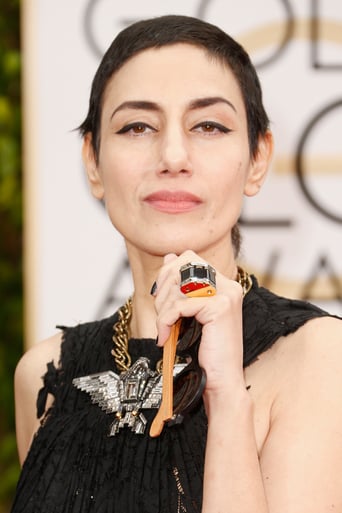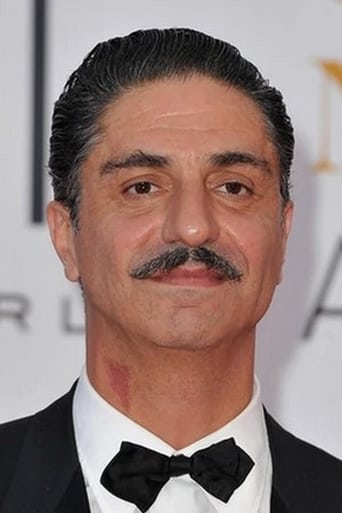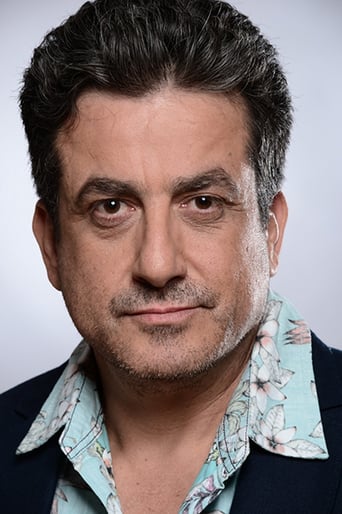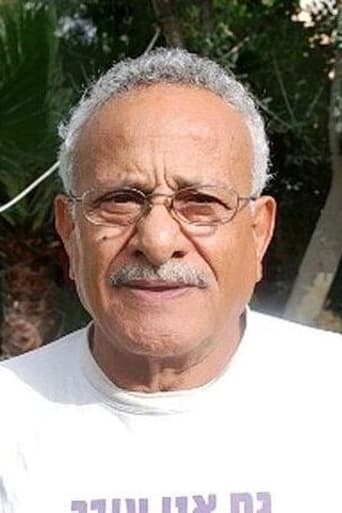Hellen
I like the storyline of this show,it attract me so much
ThiefHott
Too much of everything
AnhartLinkin
This story has more twists and turns than a second-rate soap opera.
Dana
An old-fashioned movie made with new-fashioned finesse.
Red-125
Gett: The Trial of Viviane Amsalem (2014) is an Israeli film written and directed by the sister-and-brother team of Ronit Elkabetz and Shlomi Elkabetz. Ronkit Elkabetz also stars in the movie. She plays Viviane Amsalem, who is married to Elisha Amsalem (Simon Abkarian), from who she wants a divorce. In order to be divorced from Elisha, Viviane must obtain a Gett--the approval of her husband for the divorce. That is the basic plot of the movie. In fact, it's the only plot of the movie. Can Viviane obtain the divorce that she so desperately wants.I learned--after watching the film--that Gett is actually the third movie in a trilogy about this couple. Although it would probably make sense to watch the trilogy in chronological order, Gett stands on its own as a powerful and complete film. The script contains references to earlier events, but they are presented clearly enough to allow us to understand them.All of the actions take place in the rabbinical courtroom in Israel, and in the waiting room of the courtroom. There's not a single shot of anything outside the courtroom. It's a truly claustrophobic setting, especially because the courtroom and waiting room are devoid of any color or any objects of interest, other than the actors. Both of the leading actors are superb. Our heart goes out to Viviane Amselem, who simply wants a divorce. She appears to be a fine person--honest, honorable, and someone who has made a real effort to be and remain a good wife. However, the marriage for her is dead, and she wants to leave the marriage and move on with her life. She has wanted this for five years, and still she is not divorced.Her husband, Elisha, is not a cardboard cutout villain, which would actually make things easier for us as viewers. He is a handsome, intelligent, well-spoken man. However, he appears emotionally cold and aloof. I wonder if he might have a condition somewhere along the autism spectrum. Certainly, his interactions with others--the judges, his wife, the witnesses--are uniformly cold and almost robotic.What we learn is that there is no such thing as a "civil court" for divorces in Israel. The rabbinical court is the only court. In the United States, a highly observant Jewish woman might go to a rabbinical court to obtain a Gett. If her husband refuses to give her a Gett, she can't be divorced from a religious point of view. However, if she is desperate enough, she has the choice of going to a civil court and getting a legal divorce. (This may not be considered an option by a highly observant woman, but she has the legal option, whether she chooses to use it or not. In Israel, she doesn't have the legal option.)What I took away from this film is that the Israeli legal system is broken in respect to divorce. The rabbis can ponder. They can quote from the Talmud. They can subpoena witnesses, they can freeze someone's bank account or credit cards. They can cajole, they can reason, they can fume. What they can't do is make a husband give his wife a Gett.This film was shown at the excellent Dryden Theatre in Rochester, NY as part of the matchless Rochester International Jewish Film Festival. Unfortunately, we were unable to be at the theater that night, so we bought the movie on DVD. It worked very well on DVD--it's basically a courtroom drama, so there's not any scenery or action shots that would do better on a large screen. Note: A booklet was Included in the DVD, which contained commentary about the film. That's how I learned about the two earlier movies: To Take a Wife (2004) and Seven Days (2008).
Polly Puddin
Is this movie supposed to be a comedy? An entire community of mentally challenged individuals seemingly incapable of understanding what it means to testify on someone's behalf? Each witness for the wife made the most ridiculous and laugh out loud statements, and each one eventually or in whole discrediting the wife. The rabbis (Learned men indeed) made no sense, and blatant lying was completely acceptable for them. I think the movie could have made it's point while captivating the audience if it didn't resort to turning each character into a caricature. Not one witness seemed to understand the impact their statements had against the person they were there to support. It just made me feel sorry that this entire society is built on ignorance. The lawyers, the wife, the husband, the witnesses, the rabbis - IGNORANT.
Howard Schumann
Governed by strict religious rules, there are no civil courts for divorce proceedings for Jews in Israel. Even though women over age eighteen can vote and must, like everyone else, undergo compulsory military training, Israel is still a male-dominated society and wives are considered to be the property of the husband. This means that a divorce (referred to as a "get") can only be granted if the husband agrees to it, unless there is proof of physical abuse, infidelity, or lack of support. Without a divorce, a religious Jewish woman cannot remarry and becomes an ostracized member of the community called an "agunah" or a "chained person." This predicament of Jewish women in Israel is the focus of the absorbing Israeli film, Gett: The Trial of Viviane Amsalem. Directed by siblings Ronit and Shlomi Elkabetz, Gett, the third film in a trilogy that began in 2004 with To Take a Wife and continued in 2008 with 7 Days, is a powerful dramatization of Viviane Amsalem, an unhappily married woman (Ronit Elkabetz, Edut) who seeks a divorce from her husband Elisha (Simon Abkarian, Zero Dark Thirty). Since he refuses to grant her a get, she must plead her case in a religious court under the jurisdiction of three Orthodox rabbis.Winner of six Israeli Ophir Awards including Best Picture and nominated for a Golden Globe, Gett depicts the interviews and appointments Viviane has with the rabbinical court and the entire film takes place in the cramped courtroom or in the adjacent hallways. Viviane does not appear during the first few minutes as the camera focuses only on the men talking about her. She sits facing the judges and is only visible when she is being reprimanded for speaking without being spoken to. She needs no words, however, to convey the anguish clearly apparent on her face and in her gestures.Though the trial stretches out for what seems like an endless period of time, the directors stated that similar trials may take three times as long. The dramatization of the extended trial starts and stops as we are notified by intertitles such as "three months later," "two months later," "one year later," and so forth until five years have passed. There are times when Elisha does not show up in court in spite of the rabbi's order and who threatens to revoke his driver's license, cancel his credit cards, and/or send him to jail but to no avail. If a husband refuses to grant his wife a divorce, the rabbis are powerless to force him.Though Viviane has lived apart from him for four years and claims that they have not spoken during that time, the judges refuse to see that the marriage has gone past the point of no return and look for no solution other than having the couple remain together to try and "work it out." Witnesses are brought in to testify about Elisha being a good man (one calls him a saint) who even lets his wife go out alone. Even witnesses for the plaintiff say that Elisha has a good character. Represented by her articulate attorney Carmel Ben Tovim (Menashe Noy, Big Bad Wolves), Elisha is not accused of cheating, physical abuse, or lack of support, but only that, after thirty unhappy years of marriage, she no longer loves him and that they are incompatible.While Elisha sits in distant silence, one witness claims that she heard Viviane yelling and throwing things inside the house. At that point Viviane says "It's easy to blame the one who yells. Those who whisper venom are innocent." It often seems as if Viviane is on trial rather than the issue of divorce. Elisha's brother Rabbi Shimon (Sasson Gabai, The Band's Visit) who is representing him, calls her a "wayward" woman and the judge takes offense when she unties the bun and lets her hair fall on her shoulders while another judge chastises her for speaking her mind. Brazenly, Shimon accuses Carmel of being secretly in love with his client and one witness testifies that she saw Viviane in a café talking to a man who was not part of her family.As the trial drags on, it is clear that Elisha is simply not willing to let go and that he still loves his wife even if he defines it in his own terms. Gett has become a hot-button topic in Israel and is now being vigorously debated in both secular and religious circles. In fact, it mirrors a current case in New York where an orthodox rabbi has been accused of kidnapping husbands to coerce them through beatings and torture to provide a get to their wives. While there are no clear-cut victims and both characters are trapped in a heartbreaking situation, the film is a powerful indictment of archaic religious laws and traditions that make women second-class citizens. In the movie's most compelling moment, Viviane finally explodes in a torrent of rage and frustration, practically begging for her freedom. The rage and frustration is also ours.
Nozz
The Israeli system of divorce is out of whack, a lot of Israeli women are "anchored" (as the Hebrew language puts it) in marriages they don't want, and a lot of people are angry, so as a male Israeli I'm pleased that this divorce drama doesn't turn the husband into a sneering villain to symbolize the balefulness of the system. Instead the husband is a woebegone sort of Bartleby who is emotionally unable to say "yes" to a divorce and he seems very alone. A parade of witnesses are played flamboyantly by top Israeli character actors, and the husband's isolation is emphasized by the fact that the actor playing him is a foreigner little known in Israel. (In fact, and unrealistically, the dialogue tends to lapse into French and after an initial protest the judges tend to tolerate the departure.) So while the movie certainly presents the woman as the aggrieved party-- she was married too young, and to a man whose expectations of religious observance she couldn't bring herself to meet-- the balance is not against an evil or deeply vindictive husband but against a bruised and defensive one, and it works well.




